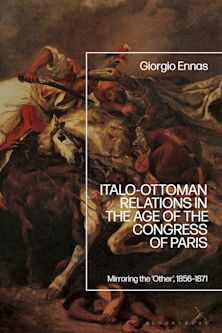- Home
- ACADEMIC
- History
- European History
- The Golem in German Social Theory
The Golem in German Social Theory
For information on how we process your data, read our Privacy Policy
Thank you. We will email you when this book is available to order
You must sign in to add this item to your wishlist. Please sign in or create an account
Description
The Golem in German Social Theory provides an innovative and bold interpretation of German social theory. Authors Gad Yair and Michaela Soyer argue that the mythological story of the Golem rising over its master provides the basic code which animated German social theory from the 19th century until the 21st century. Yair and Soyer illustrate how the Golem-run-mad narrative permeates the history of modern German social thought, and how it now provides a convenient literary tool for re-reading German critiques of the Enlightenment, modernity, capitalism, and progress. The Golem in German Social Theory points out a "family resemblance" that unites German theorists, enhancing interpretation of their writings and understanding of their moral vehemence.
Table of Contents
Chapter 2 Introduction: The Golem in German Social Theory
Chapter 3 Chapter 1. The Golem: Jewish Origins and German Renditions
Chapter 4 Chapter 2. The Ghosts and Golems of Karl Marx
Chapter 5 Chapter 3. The Dialectical Fate: The Golem and Max Weber
Chapter 6 Chapter 4. The Frankfurt School: The Golems of the Enlightenment
Chapter 7 Chapter 5. System and Lifeworld: Jürgen Habermas and Communicative Action
Chapter 8 Chapter 6. The Risky Golems of Reflexive Modernity: Ulrich Beck
Chapter 9 Conclusions: The Cultural Roots of Social Theory
Product details
| Published | 14 Dec 2007 |
|---|---|
| Format | Ebook (Epub & Mobi) |
| Edition | 1st |
| Extent | 178 |
| ISBN | 9780739155691 |
| Imprint | Lexington Books |
| Publisher | Bloomsbury Publishing |
About the contributors
Reviews
-
This powerful demonstration of the cultural roots of a particular tradition of sociological theory forces us to reassess figures we thought we knew well. A useful, careful, and incisive contribution.
John A. Hall, McGill University



































